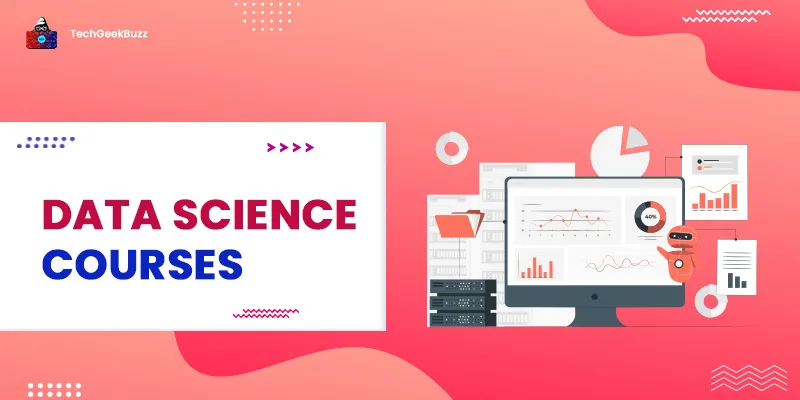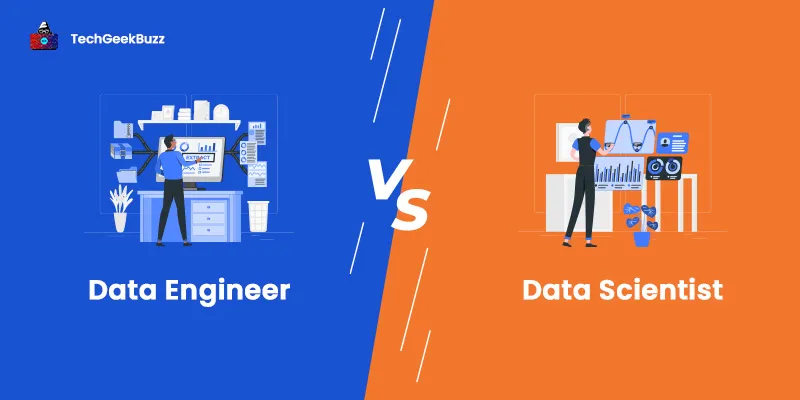With massive amounts of data generated daily, data analysis and big data have become indispensable parts of every industry. Bia data is helping businesses gain agility, improve their bottom lines, and transform how they perform business operations. They can rely on this data to derive meaningful insights and make more informed decisions. But the data collected is initially unstructured or raw, which is useless.
To utilize that data, it must be analyzed and transformed into meaningful information or insights that businesses can use for making decisions. This is where the role of a data analyst comes into play.
In this article, we shall discuss the role of data analysts and highlight their responsibilities. Also, we shall explore some top skills required to be a data analyst. So, let us get started!
Who is a Data Analyst?
A data analyst is responsible for collecting data from heterogeneous sources, analyzing it, uncovering hidden patterns and trends, and extracting actionable insights. Moreover, businesses leverage the extracted insights to make smart business decisions.
Roles and Responsibilities of a Data Analyst
A data analyst is responsible for the following:
- Extracting data from primary and secondary sources.
- Analyzing data using statistical techniques to understand its meaning and providing reports.
- Developing and maintaining databases and data systems.
- Filtering data, i.e., removing inconsistent, unwanted, and noisy data.
- Using statistical tools to identify, analyze, and interpret hidden trends and patterns from data.
- Analyzing local, national, and global trends from complex data sets .
- Documenting reports containing trends, patterns, and predictions.
- Preparing final analysis reports, helping stakeholders understand data trends and patterns, and enabling them to make smart business decisions.
To become a data analyst, it is mandatory to hold a bachelor’s degree in any field that emphasizes statistical and analytical expertise. Also, individuals from computer science, statistics, mathematics, and economic backgrounds can become data analysts.
Top 7 Must-Have Data Analyst Skills
The following are the primary skills that every data analyst possesses:
1. Analytical Thinking
Analytical thinking is one of the foremost skills required for becoming a data analyst. It plays a vital role in determining parameters that you need to consider while defining the range of data set, analyzing data, identifying patterns, and extracting meaningful information from the data.
2. Basic Mathematics and Statistics
Sound knowledge of some essential mathematical concepts is crucial in data analysis . Concepts such as Calculus, Discrete Math, Linear Algebra, and Optimization Theory enable data analysts to identify patterns from complex data sets and design algorithms.
Additionally, a strong understanding of statistical methods, like mean, regression, standard deviation, sample size determination, and hypothesis testing, allows data analysts to gather relevant data, carry out statistical analysis, and generate the results in a useful format. Based on these results, data analysts make approximate predictions.
3. Programming Skills
Even though data analysts are intended to analyze data and present actionable insights, they need in-depth knowledge of programming languages like R and Python. Also, R and Python are the most preferred programming languages for data scientists and analysts. Python is a widely used general-purpose language and an ideal choice for performing data manipulations.
Also, data processing and data learning have become easier with Python libraries, like TensorFlow, NumPy, Pandas, Matplotlib, and many others. Python is mainly used for:
- Performing data mining using Python libraries.
- Classifying, sorting, and categorizing data.
- Developing machine learning algorithms, like Decision Trees and Random Forest.
On the other hand, data miners and statisticians extensively use the R programming language to perform data analysis. It is a high-level programming language and an environment specially designed for statistical computing and graphics. Data analysts use R for exploring complex data sets and performing ad-hoc analysis.
4. Databases
Another must-have skill to become a data analyst is solid database knowledge and SQL expertise. The data collected is stored in databases, and SQL is one of the most widely used query languages to retrieve and perform manipulations on data present in databases. Also, possessing knowledge of data warehouses and data lakes is essential.
Another reason to learn SQL is that it is compatible with multiple business intelligence and data analysis tools, like Power BI and Tableau. Using SQL makes it easier for a data analyst to identify empty cells or corrupted data in a database.
On the other hand, it is also essential to hold knowledge of NoSQL databases . These databases store data in a format other than the tabular one. They can even hold unstructured and semi-structured data. Some popular examples of NoSQL databases are MongoDB, CouchBase, HBase, etc.
5. Data Visualization
As its name indicates, data visualization is the graphical representation of data. Data analysts use data visualization to represent meaningful findings from data sets graphically. The primary objective of data visualization is to make it easy to understand data-driven insights for those who are not trained in data analysis or are not from this background.
6. Communication Skills and TeamWork
Although teamwork and communication skills fall under the non-technical category, learning them is essential to becoming a data analyst. It is all-important for data analysts to communicate or present their findings or insights to others involved in the data analytics process. Data analysts not only analyze data and uncover hidden patterns but also communicate these with marketing teams, business analysts, stakeholders, and technical and non-technical audiences, etc.
7. Research
Another crucial skill a data analyst should possess is the ability to research. Data analysts are intended to derive hidden patterns and trends from complex data sets. Therefore, they must be able to conduct research in an appropriate area that corresponds to a specific business problem. They should be able to pick relevant and essential data to analyze and reach actionable conclusions.
Conclusion
With data becoming the buzzword for businesses, data analysts are in great demand today. Therefore, gaining data analyst skills opens up dozens of career opportunities. Becoming an effective data analyst requires one to possess technical and non-technical expertise. Technical skills include sound R and Python knowledge, data visualization, databases, mathematics, and statistics.
On the flip side, non-technical skills include effective communication and analytical thinking. Mathematical and statistics acumen, communication skills, analytical thinking, and problem-solving skills are the fundamental skill sets required for every career path in the big data industry.
People are also reading:





Leave a Comment on this Post